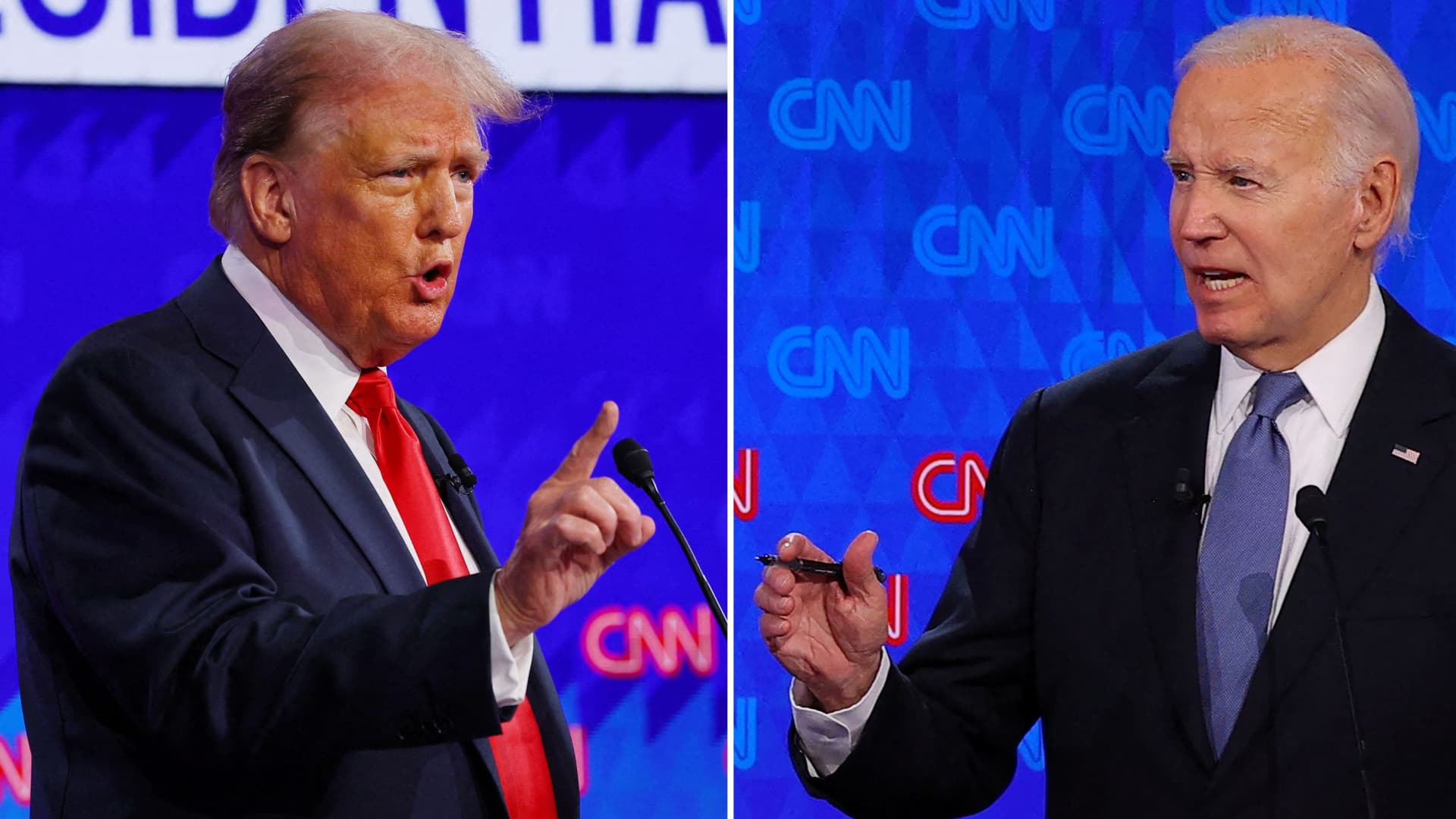President Joe Biden and former President Donald Trump share common ground on tariff policy. But some policymakers argue that while tariffs can protect and help grow domestic industries, they can also lead to higher prices for Americans.
“The economics on tariffs are really clear that they’re a tax increase that ultimately we pay,” Erica York, senior economist and research manager with the Tax Foundation’s Center for Federal Tax Policy, told CNBC. “But the politics on them are actually really favorable because the tariff is this policy tool that lets a politician say, ‘Hey, we’re going to punish foreign producers, we’re going to protect domestic producers.'”
Trump’s trade war on tariffs generated about $233 billion in duties collected by U.S. Customs through March 2024, according to an analysis from the Tax Foundation.
And U.S. consumers paid the extra billions through higher prices.
“China doesn’t pay the tariffs. The tariffs are paid by American companies that import Chinese goods, and they pass those costs on as much as they can to their consumers,” Howard Gleckman, senior fellow at the Urban-Brookings Tax Policy Center, told CNBC.
A study from the Federal Reserve Bank of New York found that Trump’s 2018 U.S. tariffs cost the typical household an additional $419 per year.
During his 2024 campaign, Trump has floated tariff ideas, including a 10% universal baseline tariff on all U.S. imports and a 100% tariff on imported cars. He also floated the idea of replacing the federal income tax with potential tariffs on countries whose citizens might be contributing to illegal immigration.
“If you look at Trump, he started the trade war with China by imposing around 25% tariffs on certain items, and now he is saying that [if he’s] elected, he will try to increase the tariffs to 60%,” Christopher Tang, global supply chain professor and business administration chair at the UCLA Anderson School of Management, told CNBC.
By comparison, Biden aims for more targeted tariffs.
In May 2024, the Biden administration announced new tariff rates on $18 billion worth of Chinese imports, including a 100% tariff on electric vehicles, a 50% tariff on solar cells and a 25% tariff on steel and aluminum.
Starting in 2025, Chinese semiconductor tariffs will double to 50%.
The Biden administration has largely maintained Trump’s trade war tariffs.
“When he was running for presidency in 2020, he said that if he was elected he would actually remove the tariffs imposed by President Trump. But he didn’t,” Tang told CNBC.
Neither candidate’s campaign responded to CNBC’s request for comment in time for publication.
Watch the video above to find out which candidate’s tariffs will be more expensive for the American consumer.
